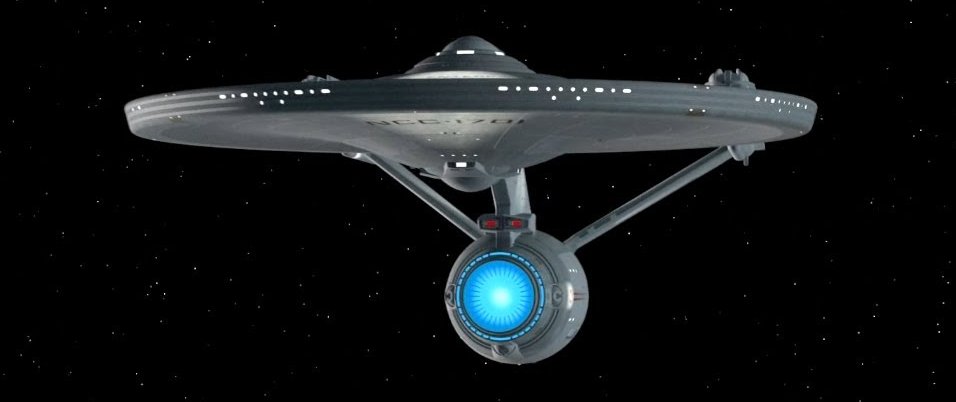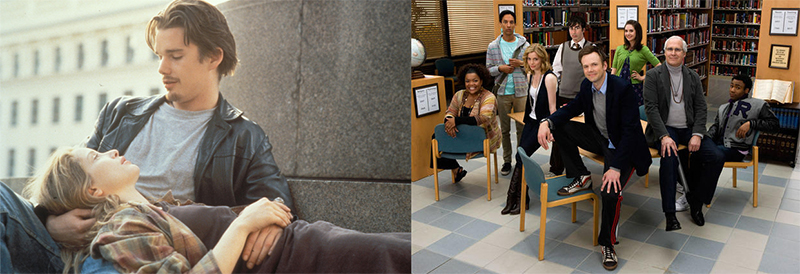Funny. I used to explain that for me the one-hour television format was as vital as the three-minute pop song was to so many others. But then the so-many-others dwindled to the point where the phrase three-minute-pop-song became vaguely factual instead of totemic.
Bruce Springsteen’s 1975 “Born to Run” helped that happen, incidentally. Its 4’30” running time was one of the first songs to show US radio stations that tracks didn’t have to be three minutes or under to be hits.
(Mind you, US radio stations are weird. For decades they had a rule that you couldn’t play two songs by women in a row. No rule against men, play those all you like, but a woman’s song followed by another woman’s song, nope. Listeners don’t like it, listeners can’t cope, and listeners will tune to another station.
There is no way in which this is sane and no way in which it is good. Except that it is specifically the reason Sarah McLachlan created the Lilith Fair concerts in the 1990s. The concert albums that resulted remain some of my favourites.
US radio didn’t learn its lesson, incidentally. Rather than doing anything interesting, they fixed the problem of listeners switching stations by making every station identical, and by having the same firms own every station. Switch if you like, it’s the same music for you, the same bottom line for them.)
Anyway.
Music and television. If no one but me uses the three-minute phrase to describe anything today but boiling eggs, still there is a connection between music and TV. A connection and a parallel.
You know the story that Kate Bush’s “Running Up That Hill” has just become a number 1 hit 37 years after it came out, and that this is down to the TV show “Stranger Things” playing it.
I see your 37 years and raise you 57.
In 1965, a pilot was made in the States about the voyages of a starship and in 2022, that pilot went to series. Fifty-seven years. Six decades. I know that as a species, we writers think decisions take a long time, but, come on.
As soon as you read the words “these are the voyages”, I think you know what this is about. If I mentioned that you need to go places boldly, that pretty much certainly nails it. And beyond adding “strange new worlds”, you just need to hear “starship Enterprise” to be totally certain you know the show.
But that pilot episode of “Star Trek” wasn’t the same show that got on the air, limped along, died, and became a pop culture behemoth with, what, a dozen feature films and as many different TV series. That pilot episode was canned and legend – honestly, there’s legend on this – is that it was because it was “too cerebral”. Viewers wouldn’t like it, viewers wouldn’t cope, viewers would change channel.
You can see that pilot episode easily enough and god help us if that’s what counted as cerebral in 1965. I was born in 1965 and I swear I could’ve grasped that pilot even then. I can imagine me all pink and hot, lying there in my first cot and gurgling “yes, yes, it’s all an illusion created by those aliens, we get it, and why don’t the women characters have anything to do?”
The show got a second pilot where it was turned into the series you know, love, and/or are at least aware of. Captain Pike was out, Captain Kirk was in.
And now, 57 years later, Pike is back in.
That 1965 pilot called “Star Trek” has now gone to series as “Star Trek: Strange New Worlds” and it came to the UK this week as Paramount+ launched here. Three episodes of the show are available in the UK so far, I think ten have streamed in the States.
It’s not cerebral. But it is very good. I tried out the first episode and the next thing you know, I’ve seen all three. I tried out the first episode to see how it worked, to examine how a 2022 production would claim to be set ten years before the 1960s show.
That was what was fascinating to me, that’s why I was drawn in. There is all the production side, and I understand there are Star Trek fans who think the sets should have been made to look exactly like the 1960s show, but then there are always idiots. It’s a long time since I saw any of the original Star Trek, yet you watch this new show and it feels like they’ve got it right.
This is how the USS Enterprise looked in the 1960s, it just wasn’t done as well as it is now. These are the characters from the 1960s, they just weren’t done a fraction as well then as they are now.
That’s what changed this show for me, changed it from an intellectual — possibly even cerebral — curiosity, into a series I just want to watch because I enjoy it.
I have to put some effort into ignoring the 1960s-style haircut that Captain Pike has, but otherwise I’m already deep into the story. Except when Nurse Chapel is on and I cannot fail to marvel at how finally, finally, six decades finally, she is given something to do.
You can tell me about the differences in filming style, or production, or direction, or special effects, and I am interested, but it’s the writing that matters. These old characters are new because they are written so much better.
Strictly speaking, I suppose it’s unfair to say that a 2022 television drama is better than a 1960s one. We are all a product of our time, and my time is 2022, so I would prefer it.
Only, the argument has been made that Running Up That Hill is a 1980s song in form as well as simply fact. That it is a product of its time, that it was made using very specific synthesisers and styles of back then, and consequently it is dated. Bollocks to that. It was a favourite of mine then, it’s deeply powerful now, even though its writing literally has not changed one note in between.
Star Trek’s writing had to change radically for that old show to work sixty years later, but it did, and it has, and it does. Dammit, I’m going to have to stick with Paramount+ after the free trial ends, just to see what happens next.
Streaming services. Subscription television. It’s a strange old world.

